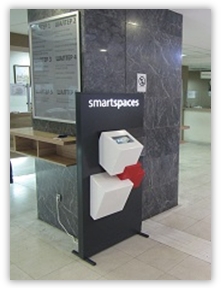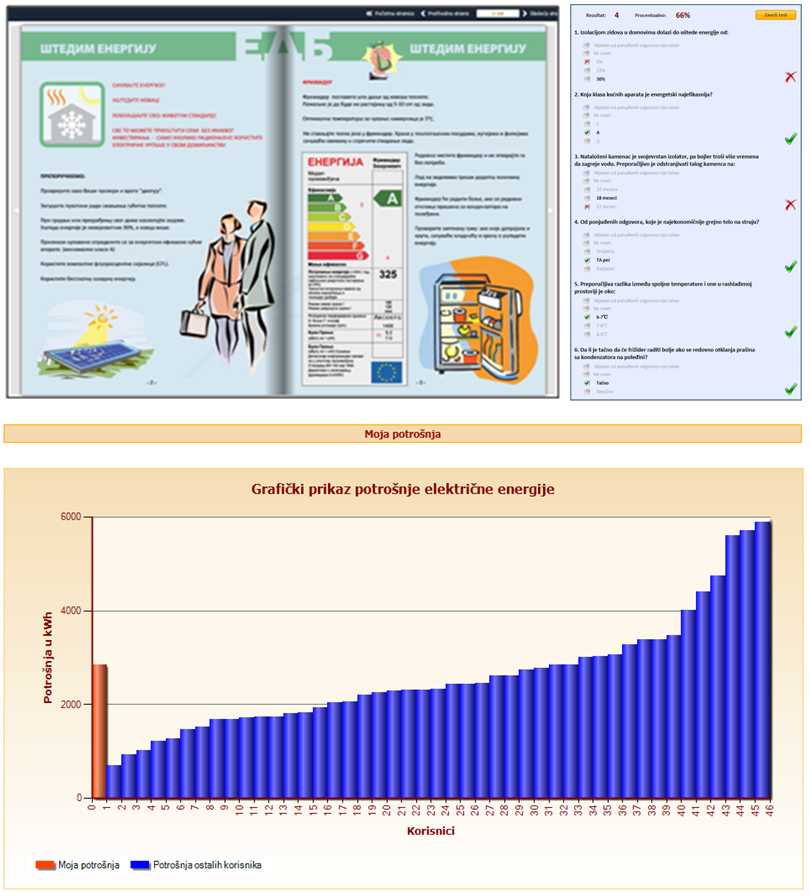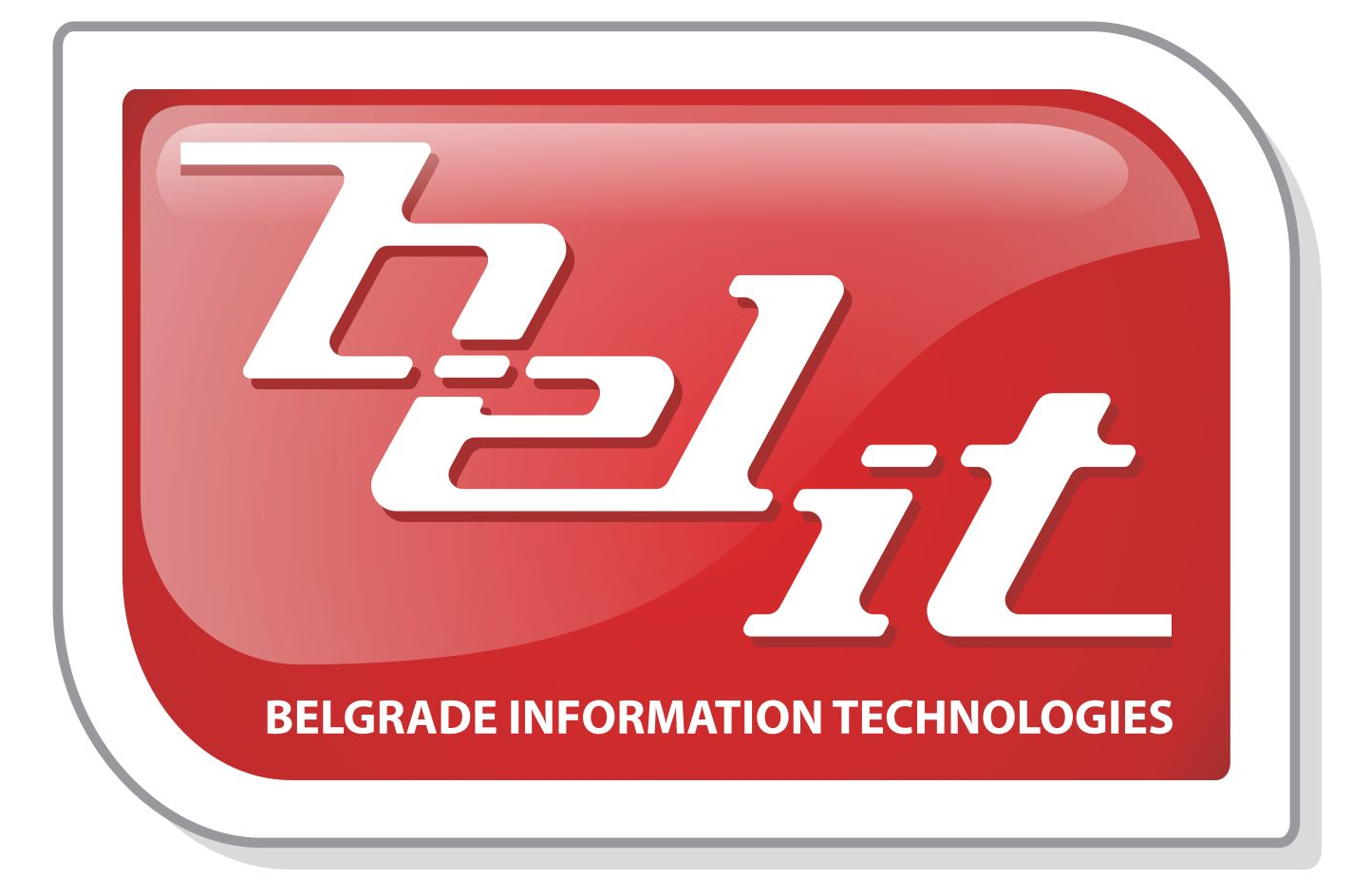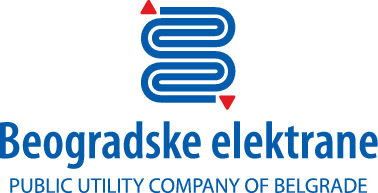Belgrade¶
Video – Savings – Service – Cost-Benefit – Exploitation – Partners
The pilot site includes two buildings in which most of the administration of the city of Belgrade authorities is based. There are 1800 permanent employees, security workers and building staff. There are about 60,000 visitors per month, who also use the building’s resources. There are about 1,500 computers, 900 IP telephones and 500 printers, numerous servers and the other equipment installed, necessary for their operation (UPS, electricity generators, and others).
The collaboration of public sector and utility companies in Belgrade has been very good for decades due to the fact that the utility companies have been founded and governed by the city authorities. In addition, the service provider and the University also have remarkable and successful collaboration with the Belgrade utility companies during the last 20 years.
Video¶
Savings¶
For more details visit the eeMeasure tool and the SMARTSPACES deliverable D7.2 also covering qualitative surveys.
Service¶
edss¶
edss services are implemented in order to provide consumption data, along with some educational material to the building staff, professionals and visitors. This is done in order to achieve a certain level of awareness among users. Services were presented to the users via different media to satisfy their needs and to try to correct their behaviour in order to achieve energy saving on pilot location.
A Web portal has been implemented for all three groups of users. The portal has a public area with a lot of educational materials, information about consumption visualised for the non-professional group of users. Other parts of the portal are restricted and only registered users can approach that part of portal after an authentication and authorization process. The city government is responsible for the authorization and user activation process.
Info desk with touch screen display are placed in the lobby and in some corridors. On that media, visitors and building staff are able to find consumption data and educational material. On the info desks, placed in the lobbies, visitors can find valuable information about energy efficiency and they can take a quiz/questionnaire in order to check their level of knowledge and to learn something new about efficient use of energy in their homes, which can help them to save a significant amount of money.
ems¶
All SMARTSPACES service components are assessed against a selection of the buildings in public occupancy in Belgrade and viable components taken on to pilot. The implemented edss and ems services enables different types of users (building energy managers, staff members working in the building, visitors) to get information on consumption of the resources of the buildings, followed by numerous information on most effective methods how to use them more efficiently. This also includes the proper approach taken by the Belgrade site SMARTSPACES partners to make aware end users of their competence and power to act towards increased efficiency when using the resources. The approach also includes workshops, lecturing, distributing printed materials, choosing proper equipment for resources use control and others.
Through the developed services the building energy managers have at their disposal all necessary data on consumption of resources in these buildings. These services also enable energy managers, being on line connected to the Faculty of Mechanical Engineering, to get information on optimal savings of resources.
Value propositions¶
Professionals have, for the first time, opportunity to monitor and understand their building over time using the portal instead of running it on a “flat rate” setting to either avoid and complaints of comfort or to comply with expense limits set by the local government (see threats). The coaching service provided by MEB helped professional and staff users to optimise their energy consumption behaviour and understand the consequences of action on other rooms. A kiosk system in SMARTSPACES design was located in the entry hall of each building and the logging shows that the portal is being used several thousand times every month by visitors of the buildings. The kiosks are signs of transparency and education for the general public which has positively rated the usability and information provided. The complexity of the portal can quickly be adjusted depending on the expertise of the user which allows the team to provide the active ‘champions’ with additional information.
Cost-Benefit¶
The SMARTSPACES project has a positive socio-economic return paying off immediately (even if the consumption savings were lower) due to the high consumption of the buildings. All cost and benefits are covered by the Council, the Energy provider supplies the energy manager advising staff and professionals on how best to utilise the information gathered by the service. Without question, the buildings at the pilot are exceptional in size and consumption. Nevertheless, the analysis shows that a deployment of ICT-enabled services in similar buildings is beneficial for the public body.
Exploitation¶
Based on the meetings organised with city governments of Belgrade and some other municipalities in Serbia, SMARTSPACES project should have a bright future. Currently, there are no comparable solutions in Serbia. Pilot locations that were operated during the project time showed great potential for energy, thus money savings. Replication will probably start in the city of Belgrade. Furthermore there is a strategy which includes an organisation named ‘Standing Conference of Cities and Municipalities’, which represent possibility of creation one cloud SMARTSPACES solution which will be online available to smaller cities and municipalities with fewer buildings. This is primarily because of the small budgets of the smaller cities and municipalities.
Furthermore, we already had some negotiations with neighbour countries regarding SMARTSPACES replication. Most concrete conversations during the past period were with Bosnia and Republika Srpska and cities like Banja Luka.
Partners¶
BELIT has considerable experience in the development and implementation of web-based information systems and portals and will collaborate with MEB, BeoElek and Palilula municipality in providing the ICT-based energy saving service the in Belgrade pilot site.
JKP Beogradske elektrane is a Public Utility Company, which supplies heating and domestic hot water to Belgrade. The company was established in 1965 in order to centralise the Belgrade district heating system. BeoElek possesses 65 heat sources with 2,574 MW heating capacity. It provides heating to 300,000 apartments and more than 8,000 office/commercial buildings for the total floor area exceeding 20,200,000 square meters.
University of Belgrade - Faculty of Mechanical Engineering (MEB) has been involved in a number of projects in different areas, among which, energy, district heating systems, heat flow metering, fuels, RES, energy efficiency in buildings, combustion, household appliances, energy monitoring and environment. Project work of MEB builds upon recent activities in collaboration with local municipalities, such as the introduction of renewable heating energy sources, improved energy efficiency of buildings and improved environmental conditions in social housing districts.









